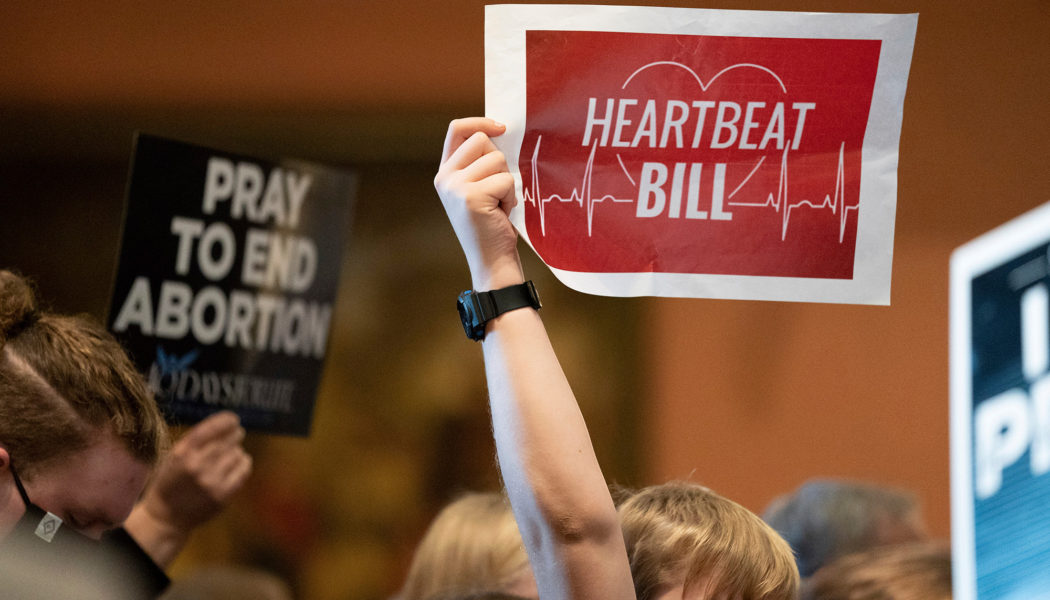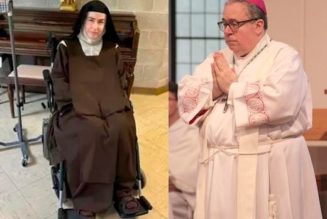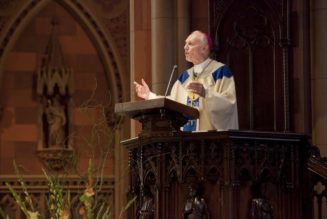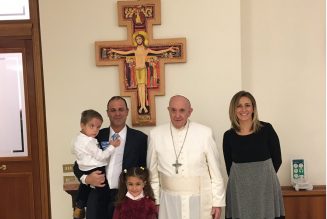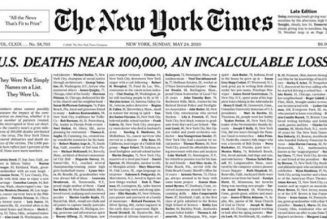
The Catholic bishops of the United States are facing a great deal of political pressure these days. We are told that we must pursue dialogue with those who disagree with the divine and natural law on the issue of abortion — or who agree privately as Catholic believers but decline to govern according to this moral teaching.
But here is my honest question: What precisely is there to dialogue about? It’s a question I’ve posed to politicians in the past.
Two years ago, I had the privilege of offering an address at the Library of Congress. To an audience of senators, representatives, lobbyists and Hill staffers, I spoke of the vocation of the politician. I asked each person in that room to remember the purity and idealism of the moment when he or she first thought of pursuing a life of public service.
I told them that in the measure they felt the urge to fight for justice, they were responding, at least inchoately, to the summons of God, who is Justice Itself.
I’m the son of a dyed-in-the-wool Chicago Catholic Democrat. My father, whose family was very involved in city politics, would sooner have become a Lutheran than vote Republican. But my trouble with modern Democrats, I explained, has to do with abortion policy, where the party has lately staked out an especially extreme position.
My interlocutors insisted upon the necessity of an ongoing dialogue between pro-choice politicians and the Roman church. I replied, “OK, I’m with you. In fact, the Catholic Church, though it opposes all abortions, would be willing to support legislation that sets at least some limits to the procedure. If you’ll give even a little bit, we’re happy to talk.”
I then commenced to test the waters. Would they, I asked, consider the banning of third-trimester abortions? Absolutely not, came the reply. Would they, I pressed, be open to restricting partial-birth abortion, the procedure by which a pair of scissors is inserted into the brain of a baby already in the birth canal? No way, they said.
All right, I wondered, would they be agreeable to supporting born-alive legislation, designed to protect the life of a baby who has miraculously managed to survive an abortion? No, they said. And lest you think this intransigence was peculiar to this particular group, recall that, just a few months ago, Sen. Ben Sasse (R-Neb.) made a born-alive proposal, and it couldn’t muster enough votes to break the Democratic filibuster.
Any authentic dialogue involves some willingness to give and take. Over the years, I’ve been involved in a number of ecumenical and inter-religious dialogues. No one expected the participants in those exchanges to adopt a stance of religious neutrality, but at the very least, there was a shared sense that we could find points of contact.
As I said, the church is happy to consider any proposal that would set some restrictions on the taking of unborn life. We’re willing to reach out. But if protecting the life of a baby struggling to breathe, after surviving a brutal attack on his life, is a bridge too far for pro-abortion-rights politicians, then I ask again, what are we dialoguing about? And let’s be honest, in regard to the baby under consideration, all of the standard justifications for aborting a child — he’s not really a person, he’s not capable of independent existence, he experiences no sensation of pain, etc. — simply fall away.
Sometimes, the term “dialogue” is used in a casual sense to signal friendliness and kindness to those with whom we disagree. And if that’s what you mean by the term, then I’m all for it. As Saint Thomas More said to his wife in “A Man for All Seasons,” “whatever can be accomplished through smiling, you may rely on me to do.”
But if the term is taken more seriously and in a more restricted way, then it has to imply a mutual willingness on the part of the conversation partners to find common ground.
So may I offer a challenge to pro-abortion-rights Catholic politicians and may I be very specific? If you’re truly interested in dialoguing with the church on this crucial matter, show a little profile in courage and support born-alive legislation. If you can take this small step in the direction of protecting innocent life, I’ll know you’re serious about the conversation.
Robert Barron is the auxiliary bishop of Los Angeles.
Twitter: @BishopBarron
Join Our Telegram Group : Salvation & Prosperity
